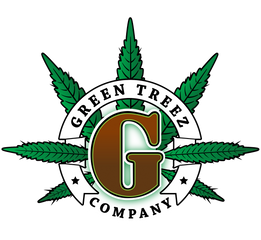THC and THCa: What’s the difference?
Cannabis enthusiasts, health-conscious consumers, and medical marijuana users often encounter the terms THC and THCa. These cannabinoids play crucial roles in the cannabis plant's effects. This post explores the differences between THC and THCa.
What is THC?
THC, or Tetrahydrocannabinol, is a chemical compound found in cannabis that is responsible for the psychoactive effects commonly associated with marijuana use. When THC is consumed, it interacts with the endocannabinoid system in the human brain, specifically binding to cannabinoid receptors. This interaction leads to a variety of effects, including altered perception, mood changes, and potentially increased appetite.
One of the most well-known effects of THC is the feeling of euphoria or "high" that users experience. This is due to THC's ability to stimulate the release of dopamine in the brain, which is a neurotransmitter associated with pleasure and reward. Additionally, THC can also affect other neurotransmitters, such as serotonin and GABA, which can contribute to changes in mood and relaxation.
In addition to its psychoactive effects, THC has also been shown to have potential therapeutic benefits. Research has suggested that THC may have analgesic properties, making it effective in reducing pain and inflammation. It has also been studied for its potential anti-nausea and anti-anxiety effects.
However, it is important to note that THC can also have negative effects, especially when consumed in high doses or by individuals who are sensitive to its effects. These can include impaired coordination, memory and cognitive function, and increased heart rate.
What is THCa?
Tetrahydrocannabinolic Acid (THCa) is a non-psychoactive cannabinoid that is found in raw cannabis plants. It is the precursor to delta-9 THC, which is the compound responsible for the psychoactive effects commonly associated with cannabis consumption.
While THCa's psychoactive effects are not as strong as traditional THC, you will still experience a similar "high" depending on dosage. THCa can also cause similar negative effects as THC when consumed in high doses.
Explore our comprehensive THCa guide to learn more about this fascinating cannabinoid and how it contributes to the overall cannabis experience.
Chemical Structures and Conversion


THC and THCa have different chemical structures. THCa contains a carboxyl group, which renders it non-psychoactive.
When THCa is heated through smoking, vaping, or cooking, the carboxyl group is removed in a process called decarboxylation. This turns THCa into THC, which is the compound responsible for the psychoactive effects of cannabis. This conversion is important for users seeking the mind-altering effects of cannabis.
THC and THCa Methods of Consumption
Smoking (Flower)
Smoking cannabis flower is one of the most traditional methods of consuming THC. When you smoke raw cannabis flower, the heat decarboxylates THCa, converting it into THC and providing psychoactive effects. This method allows users to experience the full spectrum of cannabinoids and terpenes present in the flower.
Vaping
Vaping involves heating cannabis cartridges or flower to a temperature that vaporizes the cannabinoids and terpenes without combustion. This method can be used for both THC and THCa. Vaping THCa will convert it to THC due to the heat, producing psychoactive effects.
Edibles
THC edibles are popular among users who prefer not to smoke or vape. These products provide a longer-lasting and often more intense experience. Edibles can also incorporate THCa, but unless decarboxylated, they won't provide the psychoactive effects that THC edibles would.
Concentrates
Cannabis concentrates, such as oils, waxes, and shatter, are potent forms of cannabis that can be consumed in various ways, including dabbing and vaping. When concentrates containing THCa are heated, they convert to THC, delivering strong psychoactive effects. Concentrates are favored for their high potency and quick onset of effects.
THC Effects and Benefits
- Psychoactive Properties: THC is well-known for its ability to produce a "high," characterized by euphoria, altered sensory perception, and relaxation.
- Pain Management: Effective in reducing chronic pain, beneficial for conditions such as arthritis and fibromyalgia.
- Appetite Stimulation: Often used to counteract appetite loss in conditions like cancer and HIV/AIDS.
- Mood Regulation: Can help alleviate symptoms of anxiety and depression.
THCa Effects and Benefits
- Psychoactive Properties: THCa does not induce any euphoric effects until it is transformed into THC, and it is widely believed to result in a less intense high compared to regular THC.
- Anti-Inflammatory Properties: Shows promise in reducing inflammation in some users.
- Anti-Nausea: Potentially useful for relieving nausea and vomiting, particularly in chemotherapy patients.
Legality and Regulations
The legality of THC varies significantly across regions. In some places, it is legal for recreational and medicinal use, while in others, it remains strictly prohibited. Users must be aware of their local laws regarding its consumption.
THCa, derived from hemp containing less than 0.3% THC, is legal in most U.S. states. Learn more about THC and THCa legality.
Responsible Use
You should use both THC and THCa responsibly. New users should start with low doses to gauge their tolerance and avoid any adverse effects. Proper dosing is crucial to avoid unwanted side effects.
THC's psychoactive effects can be intense, so it’s essential to follow recommended dosages and adjust as needed.
Interested in non-psychoactive options? Explore our THC vs CBD article to learn about CBD and its therapeutic benefits.
Future of THC and THCa Research
The cannabis industry is rapidly evolving, and ongoing research is unlocking new insights into the therapeutic potential of cannabinoids like THC and THCa. As legalization continues to spread, we can expect more robust studies and innovative applications that could further revolutionize our understanding of these powerful compounds.
In conclusion, whether you’re a seasoned cannabis enthusiast, a health-conscious consumer, or a medical marijuana user, understanding the differences between THC and THCa can help you make informed decisions about your cannabis use. As always, stay informed, use responsibly, and consult with professionals when needed.
Ready to explore more about the world of cannabis? Contact us or visit one of our Nashville locations to help you find what is right for you.




